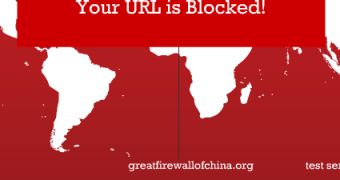The information available on the Internet is not equally available in all the world's regions, and the state of facts in China is the best example of how a government filters the data users can have access to. Popular sites like Youtube and Wikipedia are only two of the many web addresses that get blocked by military-grade firewalls.
Chinese people have yet another reason to celebrate, as a small startup called Anchor Free has unveiled a new service, able to circumvent the censorship restrictions imposed by the communist government. The service, called HOTSPOT SHIELD, allows Chinese Internet surfers to connect to YouTube and other sites blocked in China via VPN routing.
The underlying technology for virtual private networking has been initially developed as an extension for the Windows and OS X operating systems, and aimed at protecting users from hackers sniffing the data packages sent over a wireless network. However, the technology found a new lease of life with the tunneling pieces of software.
According to Anchor Free, when the Pakistani government blocked local access to the Youtube service (as it would present anti-Muslim and defamatory content), the amount of its users reached peak proportions in order to circumvent the firewall restrictions. Based on the service's success, the company now posted detailed instructions in Chinese, in order to teach Chinese web-surfers how to cheat on the ISP bans.
The VPN technology simple creates a tunnel between the client and the company's servers, then access the information via the Anchor Free servers. More than that, the information between the client and the server is encrypted and secured, then routed via the Hotspot Shield. This way, the users' location is hidden.
Users can access the service using the company's software, that automatically takes care of encryption and routing, allowing the user to focus on the data.
The company claims that its service is completely legit, although it's up to the user how they choose to approach it. However, given the Chinese firewall restriction, this may be the only way for the local Internet users to take advantage of a fully-fledged Internet experience.

 14 DAY TRIAL //
14 DAY TRIAL //